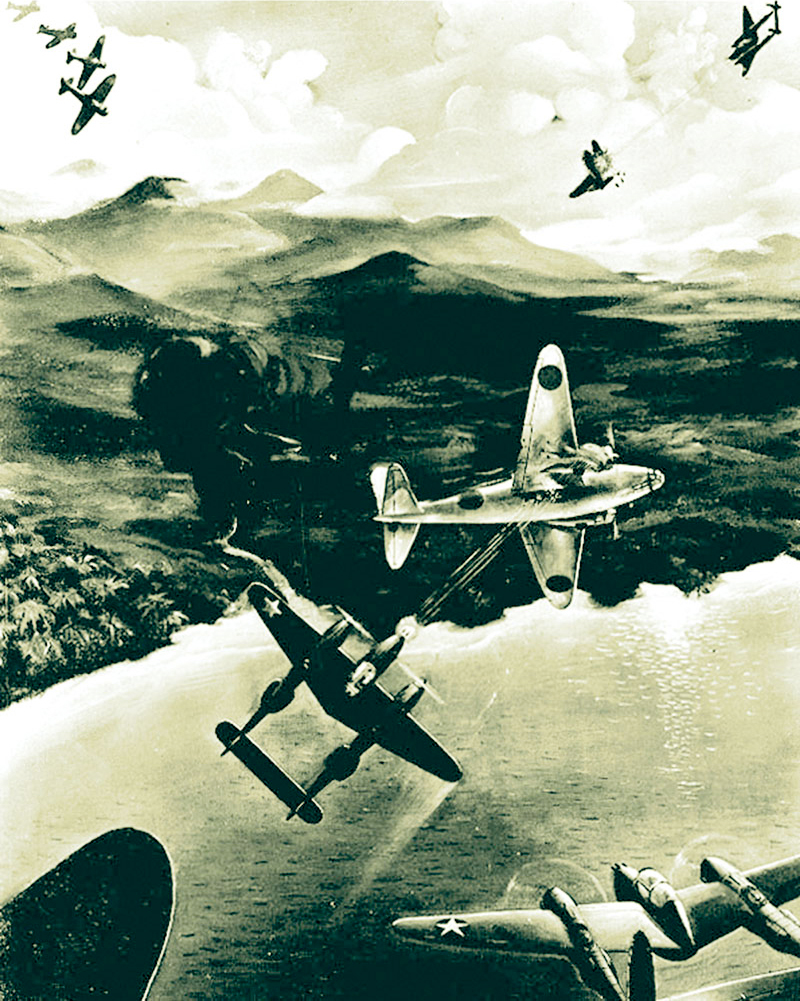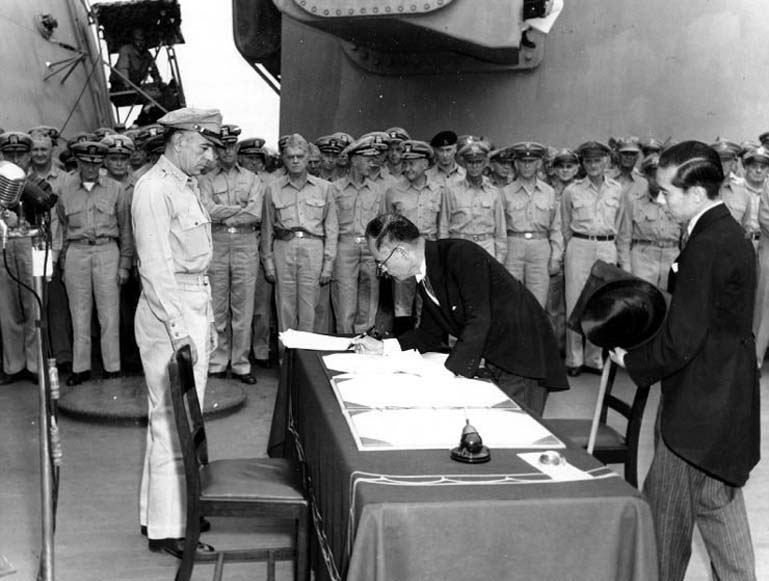DURING THE WAR
During the war, many of the AJA's faced internment. Japanese-Americans looked very different compared to other Americans and could speak a language that no one else understood. This difference and lack of understanding created fear among other Americans. Many Americans believed that the Japanese-Americans were saboteurs or espionage agents.
Japanese-Americans in internment camp.
( Library of Congress / Corbis, 1942 )
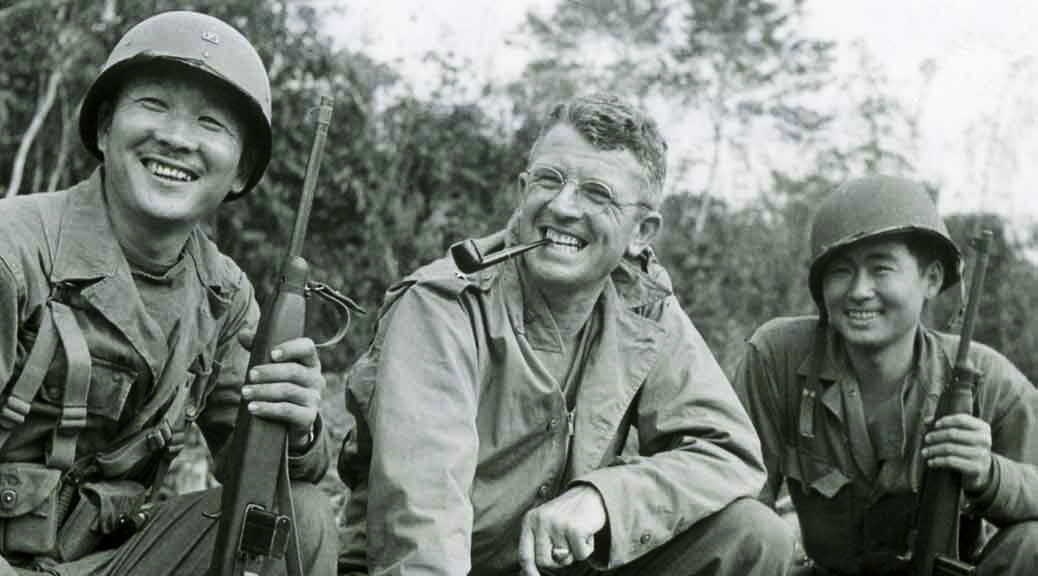
MIS linguists with Caucasian general.
( U.S. Army, 1944 )
This fear created a racial barrier for Japanese Americans. Japanese American troops, including those of the MIS, were put on the front lines of battle. They encountered enemy attacks as well as from friendly fire. Caucasian bodyguards had to accompany them to protect them from being mistaken for the enemy.
"Every time I stuck my head up, both sides would shoot at me. I had a Japanese face and an American uniform."
- Unknown MIS Nisei
“Take a good look, and remember me, because I’m going in with you!”
- Technical Sgt. Fred Tanakatsubo
Despite the racial prejudice, they were determined to fight for their country to prove their loyalty.
"My priority was to try to show the American people that we are just as loyal as anybody else. We need to prove our loyalty because the reason why we're in camp is because the American public says that we are enemy aliens. We're loyalty to Japan and so forth. And that perception'd got to be changed."
- Susumu Satow
"Not about yourself. Be loyal to your country. My father used to always tell me that, be loyal to your country."
- James Sadami Okada, Former MIS Member
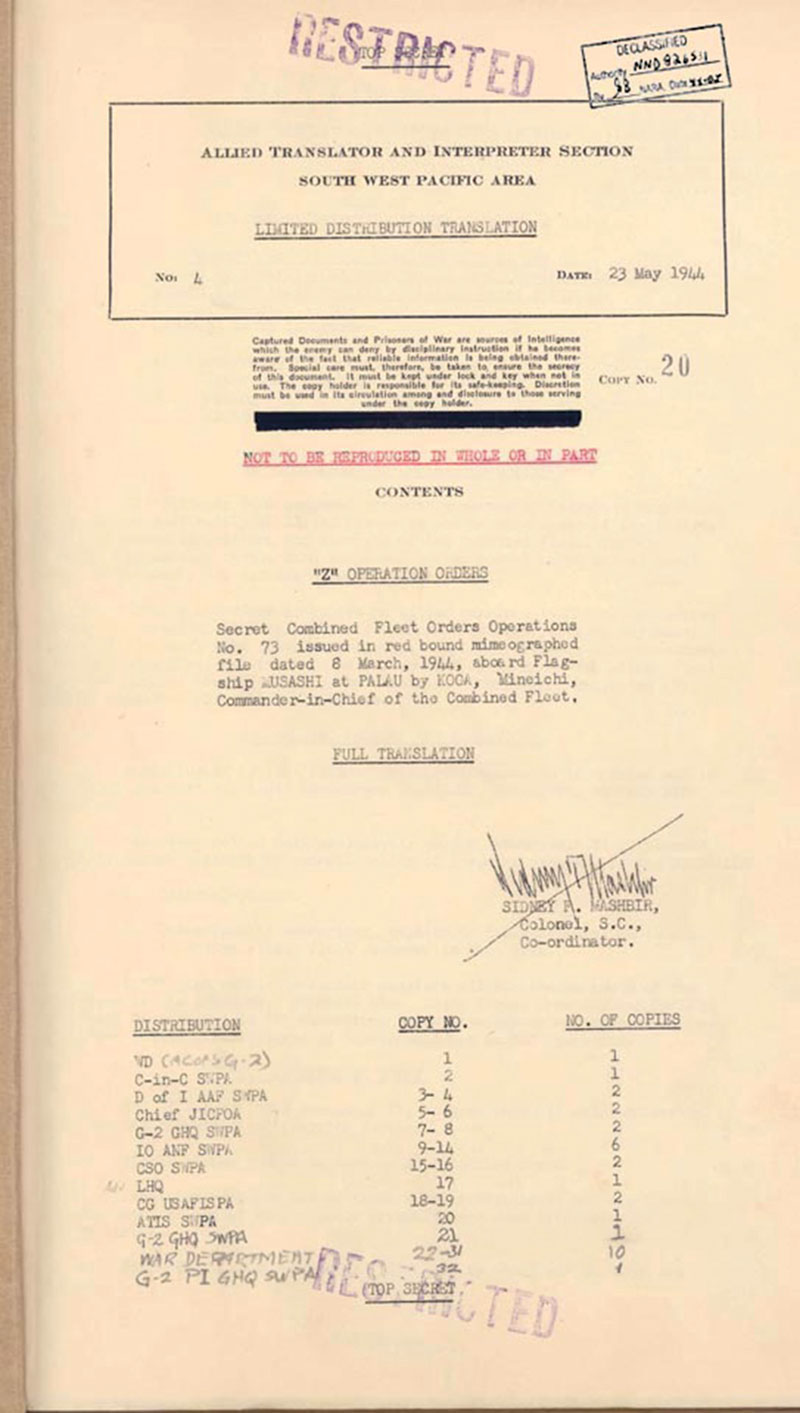
Translation of Japanese Z plan.
( National Archives, 1944 )
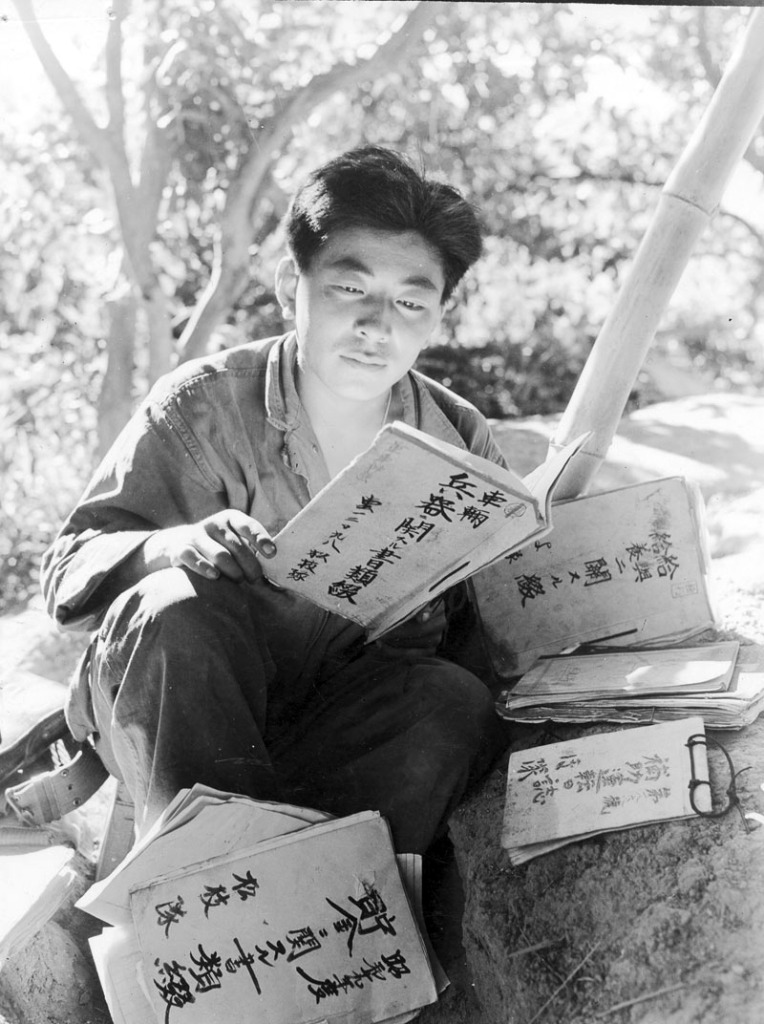
MIS linguist translating captured documents.
( Eric Saul, c.1941-1945 )
Japan believed that its language was too complicated to translate. They thought America would not have the intelligence officers to do so, because of the racism towards Japanese Americans. Therefore, Japan did not make an effort to code important information or believe that the Japanese Americans would fight and translate for the government that betrayed them.
Those trained by the MIS program were able to help America overcome this language barrier during the war. The MIS intercepted and translated battle plans. Because of this, the U.S. had the information needed to stop Japan.

MIS translating documents. ( Densho, 1946 )
"Never in military history did an army know so much about the enemy prior to actual engagement."
- General of the Army Douglas Mac Arthur
Fighting against the land of their parents also created an identity crisis for Japanese Americans. MIS soldiers were in a position where they would unexpectedly meet former teachers, classmates, and family members while in the war. It caused them to question the morality of using their culture and language as a weapon.

Soldier with mother from Japan.
( National Archives, 1942 )
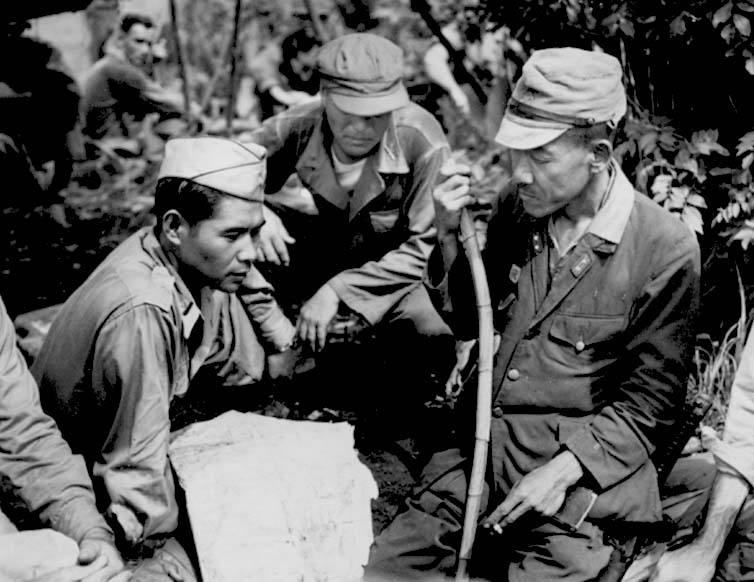
MIS discussing surrender terms.
( U.S. Army Signal Corps, 1945 )
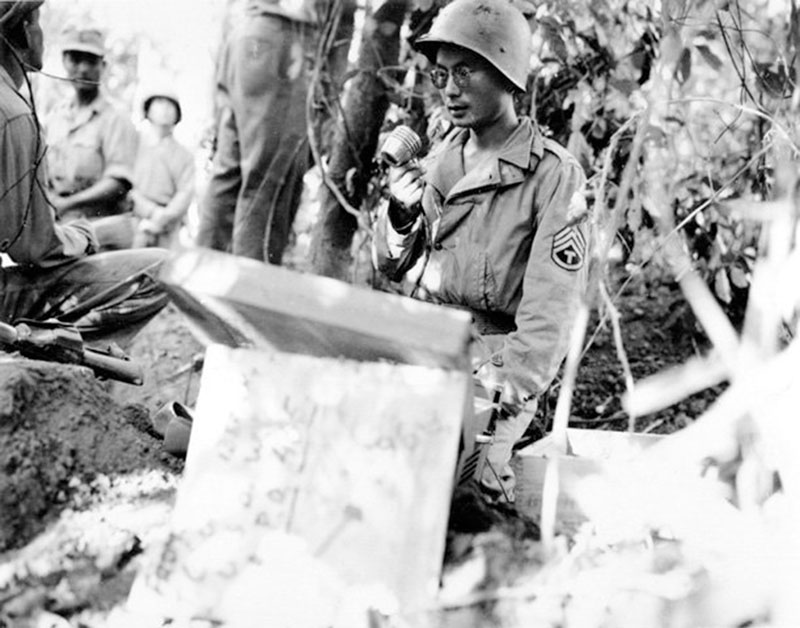
Linguists call troops to surrender.
( National Archives, 1944 )
To overcome this barrier, MIS soldiers took opportunities to use their language as a means of peace rather than violence. The MIS soldiers on the front-line of duty were able to convince many Japanese soldiers to surrender. On these occasions, the MIS soldiers continued to prove their loyalty to America and saved lives. Without them, bloodshed would have occurred, creating more death on both sides. Members of the MIS did their duties assigned to them, saved countless lives, and shortened the war by two years.
Japan's Instrument of Surrender documents.
( National Archives, 1945 )
Discussing interrogation of POW's.
( Densho, 2001 )

